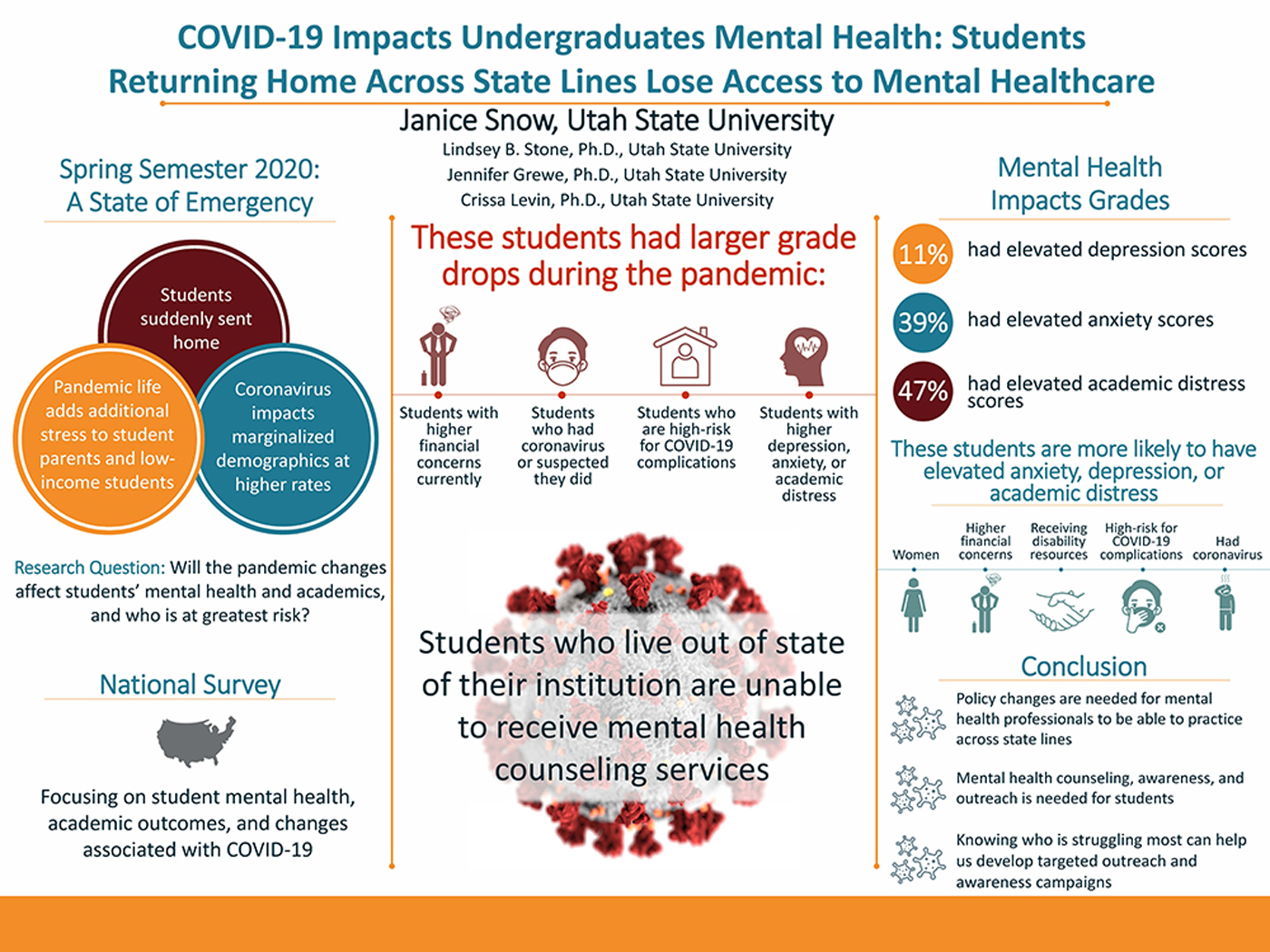COVID-19 Impacts Undergraduates Mental Health: Students Returning Home Across State Lines Lose Access to Mental Healthcare

Abstract
In the spring 2020 semester, colleges and universities throughout the nation made sudden, unpreceded shifts to online instruction due to SARS-CoV-2. With the shutdown of campuses, students moved back home with some living out of state from their institution. Additional stressors during the pandemic included health concerns for self and family members, childcare responsibilities increasing for individuals with families, financial instability, and finding accommodations for persons with disabilities. We conducted a national survey of undergraduate students during the end of the spring 2020 semester. Students nationally (n=197) were asked about mental health and academic outcomes between early and late spring semester. Higher depression, anxiety, and academic distress scores predicted decreased grades during the spring semester. Undergraduate mental health prior to the pandemic was already at crisis levels with 42% of college students reporting feeling so depressed it was difficult to function and 63% reporting overwhelming anxiety (Duffy et al., 2019). Current licensing and policy regulations prevent most counselors from providing counseling to out of state students even when providing counseling online. Traditional schools still charge all students a fee for these counseling services through their tuition fees whether they can legally access them or not. This provides a lens into a broken system that will continue long after the COVID-19 pandemic has ended. Many college students live out of state and therapists need to have the ability to work with these students in order to ease the mental health crisis among college students.
Keywords: distance students, online students, resources, COVID-19, inequalities, mental health

